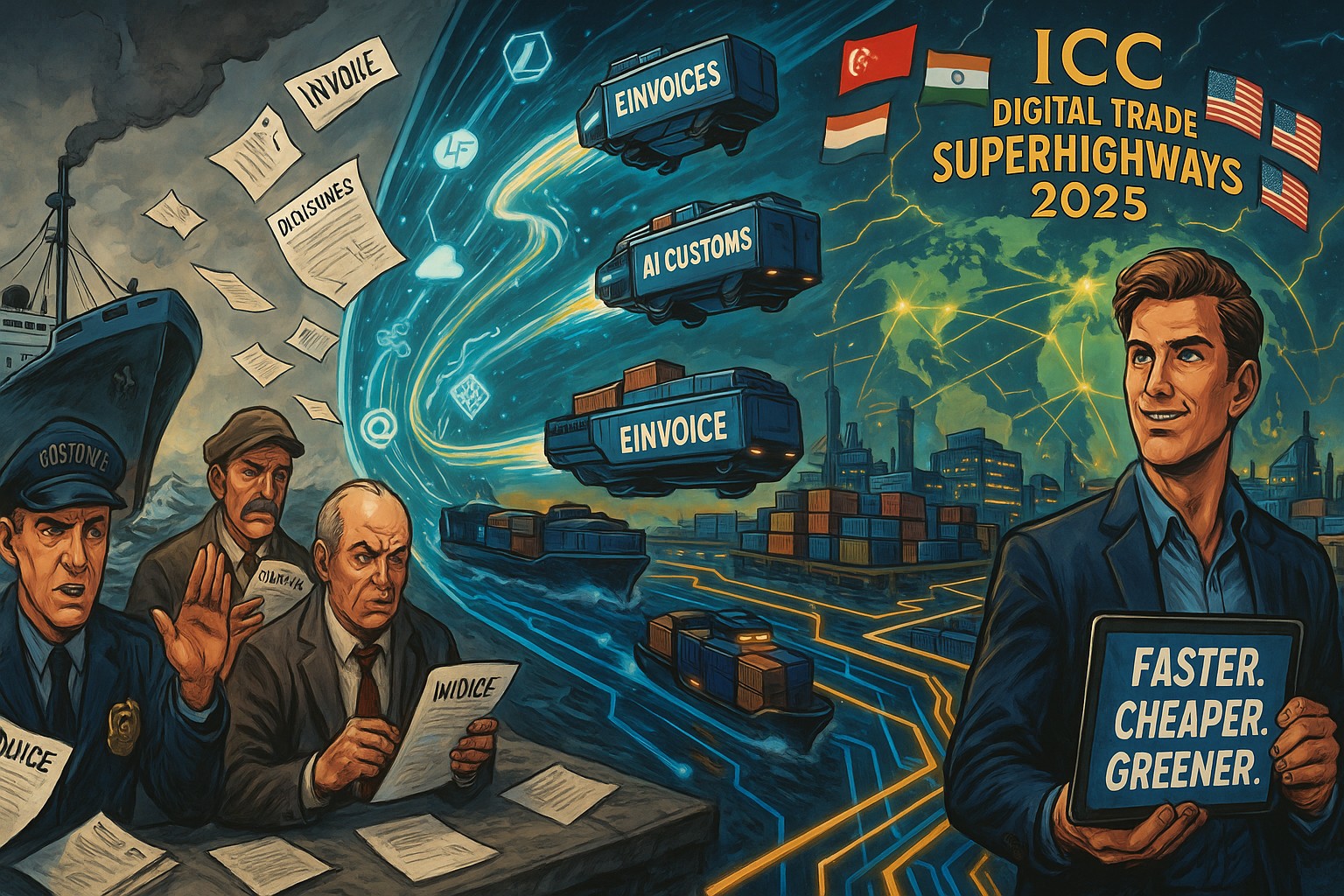
The global trading system stands at a crossroads. The International Chamber of Commerce (ICC United Kingdom) has published its 2025 report “Next-generation trade corridors — Building digital trade superhighways”, calling on governments and businesses to modernise the world’s trade corridors, making them faster, cheaper, and more sustainable. The report outlines a vision for a paperless, data-driven international trade system built on transparent digital infrastructure and harmonised legal frameworks such as the UNCITRAL Model Law on Electronic Transferable Records (MLETR).
The Backbone of 21st-Century Trade
The report compares today’s global trading system to an outdated road network — slow, fragmented, and unfit for modern needs. The solution is the creation of digital trade superhighways – fully automated, interoperable systems linking buyers, sellers, customs, banks, and logistics providers within a single ecosystem.
The first step is to connect seven strategic hubs — China, India, Singapore, the Netherlands, the UAE, the United Kingdom, and the United States — forming a global “digital artery network” that supports over USD 4 trillion in trade flows.
A Policy Vision and Next Steps
The ICC emphasises that digital trade transformation cannot happen everywhere at once. As with modernising a national road system, priority should be given to main arteries — the Maritime Silk Route and the Transatlantic Trade Route — before extending to regional corridors.
The key policy actions proposed include:
- Establishing an open and interoperable legal and data environment, aligned with international standards (UN/CEFACT, ICC, ISO).
- Phasing out paper documents by 2030, supported by regulatory incentives and harmonised timelines.
- Integrating digital business identities (LEI and vLEI) to ensure trusted cross-border verification of companies.
- Encouraging public–private investment in scalable, interoperable platforms that also benefit SMEs and developing economies.
The Results Within Reach
Twelve case studies featured in the report demonstrate that digitalisation is no longer aspirational but a proven economic driver:
- Electronic Bills of Lading (eBLs) reduce processing times by up to 99%.
- AI-driven customs declarations deliver 80% time savings.
- e-invoice registries in India and Singapore have unlocked over USD 100 billion in SME working capital.
- LEI-based digital identity tools have cut verification costs by 70% and processing times by 90%.
Beyond economic gains, paperless trade significantly reduces carbon emissions and enhances supply-chain transparency — vital for meeting ESG and sustainability targets.
A Call for Collective Action
The report urges governments, international organisations, and private actors to jointly build an open digital trade infrastructure founded on trust and transparency rather than proprietary silos. This requires legal harmonisation, common data standards, and clear political commitment.
As ICC Secretary General Chris Southworth notes, the goal is not merely to create new IT systems, but to “connect the world’s main arteries of trade into a single network of trusted digital data — making global trade cheaper, faster, and fairer for everyone.”
Summary by DigitalTrade4.EU
